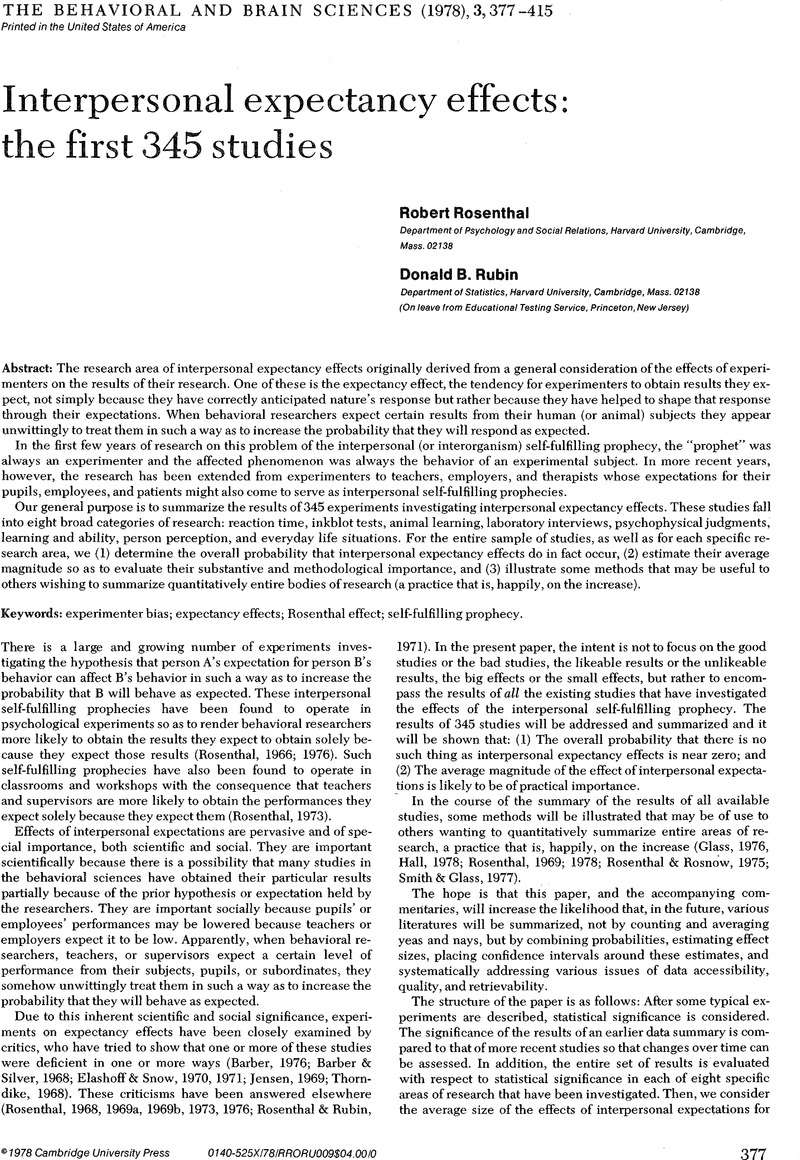Crossref Citations
This article has been cited by the following publications. This list is generated based on data provided by Crossref.
Clarke, Alex M.
1980.
The interpersonal approach to expectancy effects: the experimenter and the subjects.
Behavioral and Brain Sciences,
Vol. 3,
Issue. 3,
p.
469.
Rosenthal, Robert
and
Rubin, Donald B.
1980.
Further issues in summarizing 345 studies of interpersonal expectancy effects.
Behavioral and Brain Sciences,
Vol. 3,
Issue. 3,
p.
475.
Rosenberg, Milton J.
1980.
Experimenter expectancy, evaluation apprehension, and the diffusion of methodological angst.
Behavioral and Brain Sciences,
Vol. 3,
Issue. 3,
p.
472.
Snyder, C. R.
1980.
Applying the self-fulfilling prophecy: some thoughts on how the prophet forms and sustains expectations.
Behavioral and Brain Sciences,
Vol. 3,
Issue. 3,
p.
474.
Peeters, Guldo
1980.
Social-cognitive factors in expectancy effects: why apples and oranges are fruits.
Behavioral and Brain Sciences,
Vol. 3,
Issue. 3,
p.
471.
Umiker-Sebeok, Jean
and
Sebeok, Thomas A.
1980.
Speaking of Apes.
p.
1.
Darley, John M.
1980.
Interpersonal expectancy effects: a future research agenda.
Behavioral and Brain Sciences,
Vol. 3,
Issue. 3,
p.
469.
Masling, Joseph
1980.
On statistical stability and significance.
Behavioral and Brain Sciences,
Vol. 3,
Issue. 3,
p.
470.



